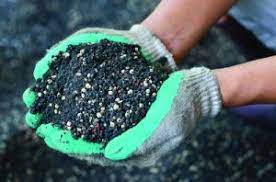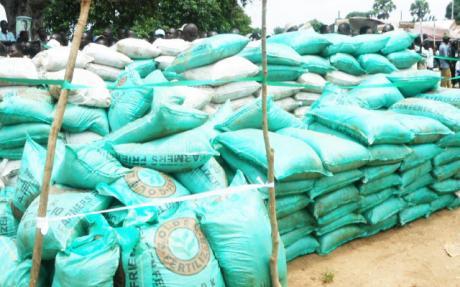The Presidential Fertilizer Initiative (PFI), has announced enhanced efforts to secure a stable and uninterrupted fertilizer supply for Nigerian farmers, aligning with President Bola Tinubu’s Renewed Hope Agenda vision for food sovereignty.
According to a statement by the PFI’s Executive Director, Portfolio, Tajudeen Ahmed, the initiative had launched a new phase, PFI 3.0, aimed at ensuring a steady supply of raw materials to blending plants and ultimately making Nigeria self-sufficient in crop production for both food and industrial purposes.
The statement read “As of September 2025, more raw materials have been supplied or ordered than the total supplied in 2024. Additional arrangements with fertilizer raw material manufacturers have been concluded to stock warehouses nationwide, and blenders will have access to as much material as their production capacity allows”.
Data from the Ministry of Finance Incorporated (MOFI) shows that from 2022 to 2025, 48 vessels have delivered critical raw materials for fertilizer blending under the PFI. In 2025 alone, 10 vessels have already discharged cargoes, totaling over 560,000 metric tonnes of inputs at the Nigerian ports, supporting robust production and continuity in the country’s fertilizer supply chain.
The Managing Director and Chief Executive Officer of MOFI, Dr. Armstrong Takang, maintained that the PFI focuses not just on volume, but also on building a system to shield farmers from global market fluctuations and promote long-term agricultural planning, describing the initiative as a model of public-private collaboration capable of addressing complex national challenges.
Since its inception, he PFI has enabled consistent local production, with over 4.5 million metric tonnes of finished fertilizer produced between 2021 and 2024. Since its inception, the programme has facilitated the distribution of more than 128 million bags of fertilizer directly to farmers nationwide.

The President of the Fertilizer Producers and Suppliers Association of Nigeria (FEPSAN), Alhaji Sadiq Kassim, stated that an expanding network of blending plants had strengthened output, saying the number of operational blending plants had increased to over 90, providing a total blending capacity of up to 13 million metric tonnes. “This would ensure that fertilizer is more accessible to farmers and helps reduce transportation costs”, he added.
“Industry leaders acknowledge farmers’ concerns over rising prices in recent seasons, attributing them to foreign exchange fluctuations and global raw material costs rather than local shortages, even as supply remains strong”, he stated further.



